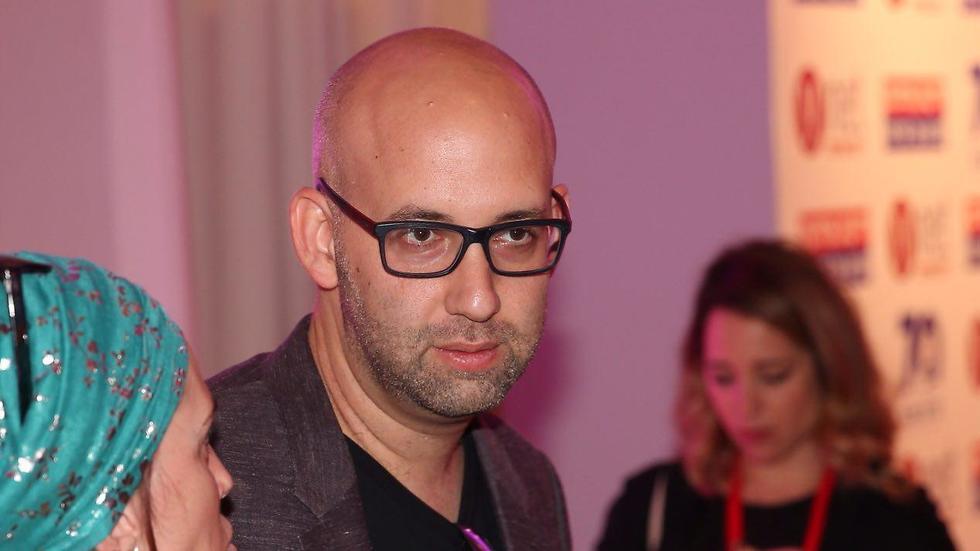Getting your Trinity Audio player ready...
Since Operation Guardians of the Wall in 2021, the Jewish philanthropic world has become obsessed with influencers on social media as a result of incitement and disinformation from anti-Israel celebrities such as Bella Hadid and Dua Lipa.
More stories:
This was the moment that Jewish organizations and donors finally realized that the pro-Israel voice had failed on social media, and that something must be done. Unfortunately what’s being done is heading in the wrong direction.
In only a few years, the era of Jewish “influencers” has exploded in the Jewish world with seemingly every pro-Israel organization and even government bodies creating influencer cohorts. This programming is then packaged up and sold to Jewish donors — especially in the U.S., who are making investments in the millions of dollars, into organizations and programs without the organizations or donors understanding how social media works.
The result has been an alarming trend of Jewish organizations paying exorbitant fees for pointless, unproductive programming — from speaking engagements, to social media campaigns, to entire organizations, and then exaggerating, whether intentionally or not, the impact of said campaigns on Jewish donors.
This dishonesty harms the community as a whole because resources are invested in programs that falsify success on social media, without the Jewish organizations ever having to prove that they’ve actually had an impact on anyone.
As the owner of a digital marketing company and someone with over a decade of experience in social media campaigning in political campaigns and causes both related to Israel and other initiatives, I’ve witnessed how easy it is to create artificial engagement and an artificial following.
Today, Jewish donors are being lied to on two primary fronts: inauthentic influencers and ineffective initiatives.
Inauthentic influencers
One of the biggest problems with the influencer model of investment is that it’s incredibly easy to fake having an impressive following. A few thousand dollars will give you a million followers, and for a few thousand more you can even purchase views or engagement. Sounds great right? Except when followers, engagement, or video views are purchased, it’s not actually real people engaging with the content — it’s click farms.
Instead of doing due diligence to research Jewish content creators before partnering with them, Jewish organizations are blinded by the number of followers they have, even when those followers aren't authentic. This is an insult to the Jewish donors paying for these projects, and it’s an insult to the cause.
"Instead of Jewish organizations or donors evaluating whether or not these influencers are even authentic or relevant, they’re writing checks and planning events thinking they’ve made it big, because an influencer with 300k followers, 295k of which are bots, is speaking on a panel. Sadly, almost all of the major pro-Israel organizations today have done this in the last two years"
Meanwhile, Jewish donors are being handed impact reports about millions and billions of impressions when most if not all of it is nonsense. “Impressions” are defined differently by each platform, and they also cannot be used to measure sentiment – impressions simply mean the number of times a piece of content has been seen, and it doesn’t tell you how many people you are reaching, much less engaging with.
It’s also important to note that some Jewish organizations are working with influencers who have large followings but are already established for pro-Israel activism, meaning they are reaching large numbers of people who already agree with them.
There is nothing wrong with this inherently, and it has an important place – but there is something wrong with using that as a strategy to try to change people's perspectives on social media outside the Jewish community.
On the flip side, there’s also been a recent increase in lifestyle, music, and sports influencers who have suddenly become “pro-Israel” speakers, working with agents to exploit Jewish organizations for events and speaking engagements to the tune of tens of thousands of dollars.
Instead of Jewish organizations or donors evaluating whether or not these influencers are even authentic or relevant, they’re writing checks and planning events thinking they’ve made it big, because an influencer with 300k followers, 295k of which are bots, is speaking on a panel.
Sadly, almost all of the major pro-Israel organizations today have done this in the last two years.
The result is a cycle in which influencers are charging legacy American Jewish organizations anywhere from $20,000-$45,000 USD for speaking engagements — on par with speaking fees of world leaders or MKs. The difference is that, unlike world leaders, some of these influencers have no expertise, no experience, no background in the Israeli-Palestinian conflict, no military experience, no academic credentials, and, in some cases, no experience in Jewish activism at all. Then the Jewish community is surprised when Gen Z isn't understanding the complexities of Israel.
So how prevalent is the problem? For the purpose of this article, HypeAuditor software was used to analyze the impact and followers of Instagram users as well as the percentage of inauthentic accounts on any given profile.
By analyzing some of the leading names of Israel advocates, you can see which activists have an authentic following and which do not.
For example, according to the audience quality score (AQS) of HypeAuditor, which is a 1-100 rating based on multiple criteria including engagement rate, quality audience, follower growth, and engagement authenticity, Noa Tishby has a rating of 78, Hen Mazzig has a rating of 81, and Israeli content creators focusing on Hebrew speaking audiences such as Shiraz Shukrun and Orin Julie both had ratings of 91 and 73 respectively.
However, there are other names less known that the Jewish community is promoting, including those being paid tens of thousands of dollars for speaking engagements, whose followings are almost entirely fake according to HypeAuditor data, even scoring as low as 18 on the AQS.
It’s important to note that every social media account — especially ones with a large following, has a percentage of inauthentic accounts. However, an AQS below 60 is a strong indicator the influencer does not have an authentic following and that should be considered by Jewish organizations before any partnership.
Some of the telltale signs of inauthentic followers is a wide disparity between the number of followers and the engagement on the posts. Unfortunately, there are also ways to falsify engagement, which can be identified by using third-party software, or by manually looking at the accounts which “like” the posts. If the posts have dozens of likes from accounts without photos or who do not have any followers themselves, that’s because they are bot accounts.
If you’re wondering how to calculate engagement, fear not. The average engagement is around 1%, and you can estimate engagement of any user by taking the total number of comments and likes on a post, divided by the total number of followers.
Ineffective initiatives
Inauthentic followers aren’t the only challenge, however. Sometimes initiatives related to social media have the best intentions but simply aren’t structured for success.
In an article published a few weeks ago, the Jewish Insider wrote about the new initiative of Israeli political advisor Moshe Klughaft, Act News — a social media account that’s bringing news about Israel in English in 3-minute studio segments for social media.
The initiative already has raised millions of dollars and is boasting hundreds of thousands of views on their content. Indeed, looking at their Instagram and TikTok, it would appear at first glance that the initiative is exploding with success, but a deeper dive brings up serious questions.
For example, the most recent video on their Instagram has 182,000 views at the time of writing this article, but only 48 likes, and that’s not an anomaly — the past 9 video segments all have between 48 and 157 likes, while having tens of thousands if not hundreds of thousands of views.
Furthermore, looking at who liked the posts, it’s almost exclusively Israelis — which begs the question, who is this initiative actually reaching? And if they are effective, why are so few people who watch the content, not liking or engaging with it? A video with hundreds of thousands of views should have at least 1,500 likes on a bad day.
In the case of Act News, it’s not possible to know for certain the cause of the discrepancy on their page, but generally speaking, disparities like this occur when users heavily advertise for or purchase views. That is why companies that sell a product on social media will often have 3-4 million views on a short video, but only a few hundred likes.
"There is a time and place for advertising, but in the case of fighting antisemitism and ideological battles — it’s not a winning strategy to rely on exclusively because it does not allow for organic sustainable growth"
This is a perfectly normal strategy for sales conversions — but to present this strategy as changing hearts and minds would be misleading.
It’s also important to note that unlike purchasing followers or engagement, advertising through social media platforms cannot be considered “fake” and shouldn’t be written off. There is a time and place for advertising, but in the case of fighting antisemitism and ideological battles — it’s not a winning strategy to rely on exclusively because it does not allow for organic sustainable growth.
In the case of Act News, it’s not possible to confirm if they are advertising, and it may be that they are influencing people outside of the Israeli audience, but the evidence that is visible on their social media doesn’t seem to support that today.
Investing in the wrong places
Another example of a high-spend campaign that had the potential to be impactful but wasn’t, is the blue square campaign “Stand Up to Jewish Hate” which was supposed to fight against antisemitism.
Aside from the obvious grammatical error of making the entire campaign name sound like Jews are the hateful group rather than a minority facing hate, this campaign is a prime example of a lack of knowledge when it comes to social media — a campaign in which $25 million dollars were spent, that utilized a hashtag of a blue square emoji without realizing that emojis cannot be used in hashtags.
The campaign messaging, instead of having a creative educational aspect, relied on imagery of a blue square on a black background and a claim that “the size of this blue square is 2.4% of the post — the same size as the Jewish population in the U.S., yet Jews are on the receiving end of 55% of all hate crimes.” While this is a true and disturbing statistic, the blue square concept has nothing to do with antisemitism and confuses the viewer.
"Jewish donors deserve authenticity and transparency. Both donors and Jewish organizations need to have a deeper understanding of how social media influence can be fabricated, as well as how analytics can be selectively manipulated, or this problem will only get worse as the community continues to elevate those who are exploiting the commitment of Jewish donors to supporting Israel and combating antisemitism"
Instead of that money going to a campaign that could fuel discussion, it was largely ignored and in some cases, Jewish organizations distanced themselves from it due to the confusing messaging.
Now, according to sources on background, the creators of the campaign have been fundraising to do the initiative again claiming it was a great success.
What can be done?
Far too many initiatives in the Jewish world, however well-meaning, are flawed and end up creating a cycle that rewards dishonesty at every level from the activists, to the organizations, to the donors. Donors are receiving bad intel that specific campaigns and individuals are what they should be pouring money into, and there is little to no return on investment.
One activist who asked not to be named due to her position in a Jewish organization, reported that her organization had paid tens of thousands of dollars in speaking fees for an influencer who had “a completely fake following.”
“It’s like people see a big number of followers and don’t understand that it’s all fake. Meanwhile, at least some of these activists are exploiting our community to try to get accolades and promote their own companies and products that aren’t even related,” she said.
Jewish donors deserve authenticity and transparency. Both donors and Jewish organizations need to have a deeper understanding of how social media influence can be fabricated, as well as how analytics can be selectively manipulated, or this problem will only get worse as the community continues to elevate those who are exploiting the commitment of Jewish donors to supporting Israel and combating antisemitism.
On one of my first days working for a digital marketing company in Washington DC, I asked my boss how we can get tens of thousands of followers on an account for a political candidate. I was ready to buy whatever it took. But he gave me the best advice I’ve ever received to this day about social media: “The only way to grow is through blood sweat and tears.”
With all the algorithm changes over the years, this simple truth remains. The best way to create a following and to have a meaningful impact is to put in the work to make authentic and creative content. In the long run, this is the only thing that will pay off and the only thing that has the power to change hearts and minds at an individual level.
First published: 18:58, 06.10.23





